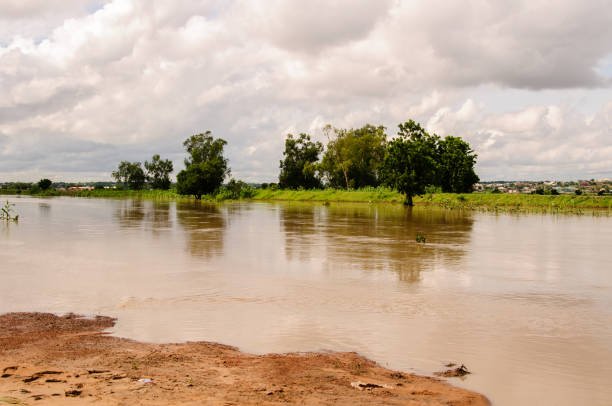
By Media360Impact Editorial Board. Ameh Gabriel et al
As the effects of climate change intensify across the globe, the looming threat of “water wars,” conflicts sparked by access to freshwater, has become more than a dystopian projection. For Africa, and specifically Nigeria, the question is no longer if this crisis will manifest, but when, and more importantly, are we prepared?
Water is life. Yet, in many African countries, including Nigeria, water scarcity is becoming a disturbing reality. Climate change has distorted rainfall patterns, dried up rivers, and caused widespread desertification, particularly in the Sahel region. In the north of Nigeria, Lake Chad, a lifeline for over 30 million people, has shrunk by over 90% in just a few decades. This ecological catastrophe is not only threatening livelihoods but also fueling violent conflicts, especially between farmers and herders competing for rapidly dwindling resources.
Water Scarcity as a National Security Threat
The drying up of water sources is no longer just an environmental issue; it is a national security threat. In Nigeria, clashes between herders and farmers over water and grazing land have escalated into deadly confrontations, displacing communities and destabilizing regions. Similarly, armed groups often exploit water scarcity to control territories and populations, creating another layer of complexity to already fragile states.
Across Africa, tensions are already bubbling. The dispute between Ethiopia, Egypt, and Sudan over the Grand Ethiopian Renaissance Dam (GERD) is one such example of how water could ignite future geopolitical confrontations. As rivers, lakes, and aquifers dry up, regional cooperation or conflict will shape Africa’s future.
Is Nigeria Ready?
Despite these red flags, Nigeria appears dangerously unprepared. The country’s water infrastructure is outdated, urban water systems are overwhelmed, and rural areas still lack access to clean water. According to the World Health Organization, more than 60 million Nigerians do not have access to basic drinking water services. Climate-resilient water management policies remain largely underdeveloped, and environmental legislation is often poorly enforced.
Even more worrisome is the lack of coordinated climate policy that places water security at the center. Budgets for environmental protection and climate adaptation are underfunded, and the government’s climate action plan still lacks clear timelines and enforcement strategies.
The Need for Urgency and Innovation
Now more than ever, Africa and Nigeria in particular must treat water not just as a commodity, but as a strategic resource requiring urgent and sustained action. This includes:
Investing in water infrastructure that is climate-resilient and accessible.
Harvesting and storing rainwater using local and scalable technology.
Protecting natural water bodies through reforestation and wetland conservation.
Implementing transboundary water cooperation agreements with neighboring countries to prevent future conflicts.
Empowering local communities with water governance tools and climate education.
Most importantly, youth involvement must be central. Africa’s young population can become powerful advocates for climate justice, environmental innovation, and sustainable water practices if given the platform and resources.
A Call to Action
The world is heading toward an era where wars may no longer be fought over oil or ideology but over who controls the water. Africa has a narrow window to avert this future. Nigeria, as the continent’s most populous nation and a regional power, must lead by example. If we fail to act now, the coming water wars may not only destroy ecosystems but also unravel the fragile peace in many parts of the continent.
Climate change is here. The water crisis is real. The question is: Will Africa and Nigeria rise to the challenge or be swept away by the tide of inaction?








